Register Your Interest, Copyright for Paper and E-Books
Copyright is a term well known to any author, or artist of any kind, for that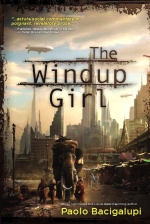 matter, but I’ve often been surprised at how many misconceptions there are about this area of law. Now, here I must insert my usual disclaimer. Even though I am a lawyer, I am inactive in the bar at the moment and thus do not keep on top of every development in statutes and case law. I write this as a general guide, a place for you to get started, but if you have any concerns regarding your copyrights, I always recommend you hire a lawyer who is currently practicing law. That said, let’s discuss copyrights and some basics about how they work.
matter, but I’ve often been surprised at how many misconceptions there are about this area of law. Now, here I must insert my usual disclaimer. Even though I am a lawyer, I am inactive in the bar at the moment and thus do not keep on top of every development in statutes and case law. I write this as a general guide, a place for you to get started, but if you have any concerns regarding your copyrights, I always recommend you hire a lawyer who is currently practicing law. That said, let’s discuss copyrights and some basics about how they work.
There are two current developments in the publishing industry that have inspired me to write this post.
1) The rise of the indie author, meaning an author who publishes without using a publisher or agent.
2) The unprecedented growth in e-publishing.
But first a little background.
What Is Copyright?
Copyright is the right you have to exploit your artistic work for commercial gain and exclude others from doing so without a license. It attaches to your work the moment it is “fixed in a tangible medium”. In other words, once you write it down, record it on a CD, or save it to your hard drive, you own the copyright in your work. The term “tangible medium” is dated, because we can’t really touch computer files on a hard drive – or, at least, we shouldn’t try it – but computers and their data storage devices have been around long enough that they are included in this definition. I’ve surprised many people by saying this, though it is nevertheless the truth. All you need to do to own the copyright in your work is create said work.
 But let’s be clear about what the copyright covers. It covers the way you execute your creative idea (courts may now have more precise language, but that’s the gist.) It does not cover:
But let’s be clear about what the copyright covers. It covers the way you execute your creative idea (courts may now have more precise language, but that’s the gist.) It does not cover:
1) The underlying ideas or story concept. If it did, our libraries would be much smaller and the average writing career much shorter. As several of my writing instructors have said, there are a finite number of stories, and an infinite number of ways to express them. It is the expression and execution that is yours.
2) Coincidences. If someone on the other side of the world writes a book that is nearly identical to yours, but you cannot prove they had any access to your work, you cannot enforce your copyright against them. They have their own copyright. Copyright protects against theft of the work; it does not prohibit others from creating similar works.
3) Fair use. I could probably write several posts on this concept alone, but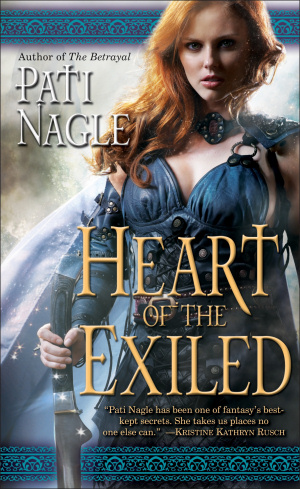 for our purposes here, let me just say that this protects other people using your work non-commercially. So, a college professor could xerox your short story and hand it out to his class to read, or a critic could excerpt pieces of your novel in their review. Your most devoted fan could xerox your entire book in order to keep the original pristine while she reads the copies until they fall apart.
for our purposes here, let me just say that this protects other people using your work non-commercially. So, a college professor could xerox your short story and hand it out to his class to read, or a critic could excerpt pieces of your novel in their review. Your most devoted fan could xerox your entire book in order to keep the original pristine while she reads the copies until they fall apart.
There’s considerably more nuance to this body of law, but that’ll give us a rough sketch. All of that I’ve listed above, you get once you create your piece. It doesn’t matter whether it is published or not. In order to win a copyright claim against someone else, you need to prove that you created your work before the date of the infringement, and that the person had access to your work in order to make a copy. This is why some people mail themselves a copy of their completed manuscript. If you leave the envelope sealed, then you can prove your manuscript existed on the date of the cancelled stamp.
Registering Your Copyright
Many people assume they need to submit copies of their work to the Library of Congress and the US Copyright Office in order to have a copyright in their work. You do not; however, registration does give you some additional perks.
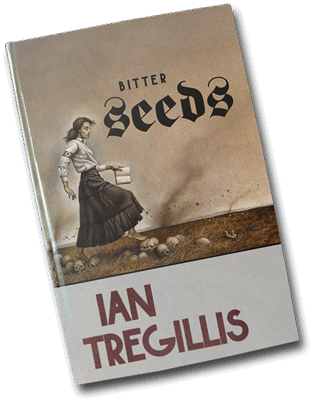 First of all, it proves your work was in existence as of the date of the registration. You don’t need to prove this by other means, like the date your computer file was last modified, a postmark on a self-mailed envelope, or the testimony of your roommate who swears up and down that she can remember the month and day she read your finished manuscript.
First of all, it proves your work was in existence as of the date of the registration. You don’t need to prove this by other means, like the date your computer file was last modified, a postmark on a self-mailed envelope, or the testimony of your roommate who swears up and down that she can remember the month and day she read your finished manuscript.
Second of all, it gives you more remedies if you do have to sue an infringer. If you haven’t registered your copyright, you cannot sue for punitive damages, or at least that was the case when I was in law school. Again, talk to a real lawyer if this is a pertinent issue for you. You can sue for consequential damages, which means the amount of money the infringer has made from using your work, or the amount of money you lost because of the infringement. All of us who make money writing know, this usually isn’t much, and rarely will it cover the costs of a lawsuit. If you’ve registered your copyright and can sue for punitive damages, this may make a lawsuit economically feasible.
Third of all, you get to put copies of your work in the Library of Congress, and let’s face it, that’s just cool. A family friend of mine works for Congressional Research Services and his office is in the Library of Congress. He has a little dumbwaiter that will deliver any title he wants, because if it’s registered in the US for copyright, the Library has it. He could have your book delivered within minutes, should he so desire! Okay, so that’s not the most practical reason to register your copyright, but admit it, you’d be excited to see your book on that dumbwaiter. But I digress…
The next topic is perhaps obvious.
How Do You Register Your Copyright?
In the good old days, when books were always made of paper, there was only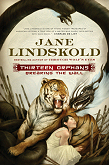 one way to do this. Your publisher followed the current procedures of the Copyright Office, which included a step when they mailed in two copies of your book. For those of you published traditionally, this is still how it works. But what if you are an indie author?
one way to do this. Your publisher followed the current procedures of the Copyright Office, which included a step when they mailed in two copies of your book. For those of you published traditionally, this is still how it works. But what if you are an indie author?
If you don’t have a publisher, you must register your copyright yourself. That, again, is pretty straightforward. You go here: http://www.copyright.gov/eco/eco-tutorial.pdf and follow the directions. That is the Copyright Office’s tutorial on the subject, and one of the steps is, again, you mailing in two copies of your book. Simple, right?
But what if you don’t have physical books? What if you’re an e-published author? Your books exist in the ether of the Amazon Kindle or Barnes and Noble Nook stores? Again, you follow that same tutorial I linked above. One option it gives you is to upload your ebook right onto the Copyright Office’s site.
Okay, simple enough. Why did I think this was worth writing a whole article about? Well, there’s an interesting wrinkle here. It is theoretically possible that you could e-publish your book, register the e-book for copyright, and then print publish your book. Now assume someone infringes your copyright using the printed book. Say they live somewhere without internet and don’t even know what a Kindle is. Can you sue for punitive damages?
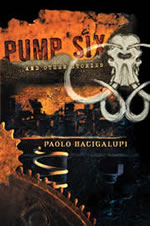 As far as I’m aware, no one’s ever tried, but if you read the tutorial I linked, you may upload an e-book to register its copyright only if that book has been exclusively e-published and not yet print published. Thus that registration does not necessarily cover the print format of your book. Given that, it would make sense to always send in a hard copy of your book, right? That, the Copyright Office has said, covers both the print version and e-version of your book. (This was expressed in a private communication from the Copyright Office, call them for your own private communication if you want that confirmed.)
As far as I’m aware, no one’s ever tried, but if you read the tutorial I linked, you may upload an e-book to register its copyright only if that book has been exclusively e-published and not yet print published. Thus that registration does not necessarily cover the print format of your book. Given that, it would make sense to always send in a hard copy of your book, right? That, the Copyright Office has said, covers both the print version and e-version of your book. (This was expressed in a private communication from the Copyright Office, call them for your own private communication if you want that confirmed.)
Yet in order to mail in a print copy of the book, you must send in the best version you’ve got. Most people would consider that to be the bound version, but if you’ve e-published yourself, you may not have a bound version. Never fear, the Copyright Office will accept an unbound manuscript, if that’s the best version you’ve got, and if you’re okay with the image of that riding the little dumbwaiter in the Library. (It’d be cruel of me to point out that nothing any of us has written is likely to ride that dumbwaiter, no matter the format.)
Some Links
If you’ve gotten this far, then I assume you’re interested in registering a copyright, or at least knowing how to when the time comes. I’ll link that tutorial again:
http://www.copyright.gov/eco/eco-tutorial.pdf
The Copyright Office is here:
And as I’ve posted before, if you need a lawyer, search this site:
You want a lawyer from your state, and ideally your region of your state, who specializes in intellectual property. Any lawyer who has any peer rating on that site is an above average practitioner. The ratings are CV (the lowest) BV and AV (the highest).
who specializes in intellectual property. Any lawyer who has any peer rating on that site is an above average practitioner. The ratings are CV (the lowest) BV and AV (the highest).
Since e-publishing is so new, this article may go out of date in the near future. Always consult the Copyright Office and/or an intellectual property attorney for the latest developments.
All images were used with permission from the authors (because really, this isn’t the appropriate time for irony, is it?)
Thanks for the article. I’m working with a friend who’s written an epic fantasy novel and I’m not sure if he’s done anything about registering his copyright. I was aware copyright attaches as soon as it’s committed to a tangible medium, however I didn’t know there was a further step to protect works.
OK, just done a bit of googling and it turns out that here in the UK there is no registration process according to the Intellectual Property Office, which would explain why I hadn’t come across it!
A very useful addendum, thanks very much for posting it. US Copyright registration may still provide some additional remedies within the US for works distributed in the US, so even if your friend is based in the UK, he may want to register.